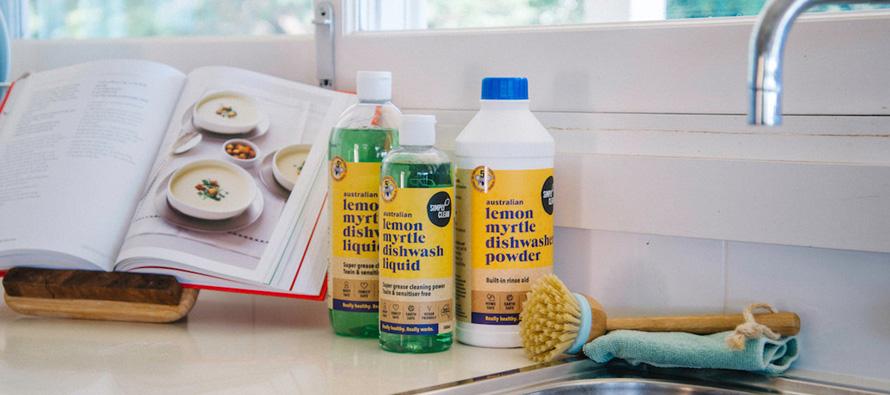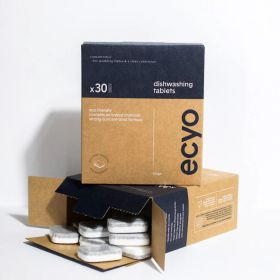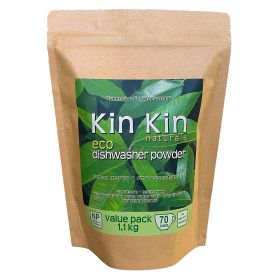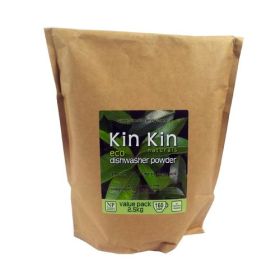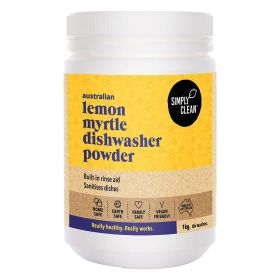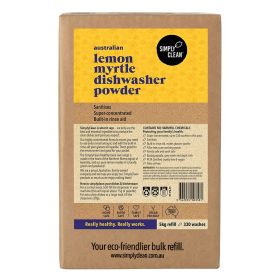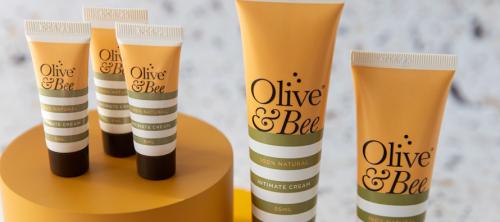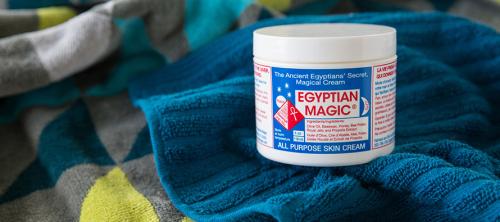Enzymes used in #1 natural automatic dishwasher powder
Inside the body, digestive enzymes are used to break down food into small particles that can be utilized by the body. For example, the digestive enzyme protease is used to break down protein in your food. Lactase is used to break down lactose, which is found in milk. Amylase breaks down carbohydrates and is actually produced in the mouth when you chew. Lipase breaks down fats. You get the idea. Enzymes aren't just in your digestive system though, other types of enzymes exist and some are used in natural cleaning products in place of cheap lab derived ingredients.
Our most popular dishwasher powder from Kin Kin Natural uses them. So does Earthwise. Past brands we have stocked like Eco Store & Seventh Generation also use enzymes in their Automatic Dishwasher Tablets & Powders instead of harsh chemicals. While they are much safer than mainstream alternatives, enzymes have been known to cause skin irritation in some people, and as such, those choosing to reduce the load of toxins & irritants in their life should ensure they know what enzymes are, when it's a good idea to use them, and how to handle them correctly to avoid any irritation.
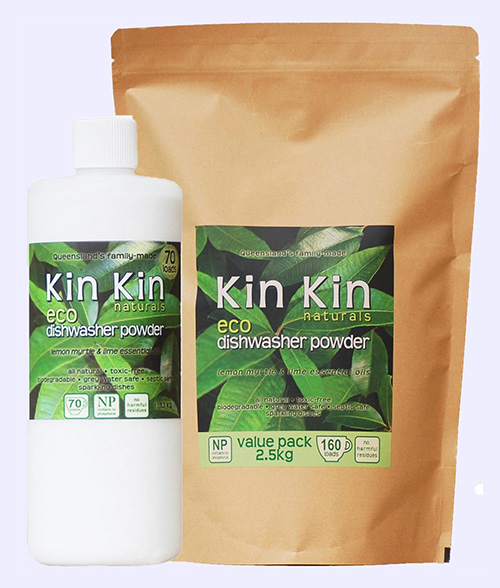
Enzymes in Automatic Dishwasher Powder
Are they safe? Yes, it is safe to use enzymes in automatic dishwasher powder, but they do require careful handling. It's important that the enzymes don't come in contact with your skin, so, avoid handling powder and ensure that when you're handling the tablets, their biodegradable wrapper is still in tact. Both the Eco Store & Seventh Generation natural dishwasher powder we used to stock had a low alkalinity and are derived from Corn, Potato & Wheat.
Won't the enzymes stay on my dishes? No. The enzymes won't stay on dishes. As long as your dishwashers rinse cycle is working correctly, they get rinsed away. As long as you only have items in your dishwasher that are non-porous (ie: crockery, stainless steel), any potential skin irritant will be washed away.
What about plastic? We actually advise that people do NOT put plastic in the dishwasher. Why? Plastic, even if it's BPA Free, has the potential to degrade at extremes of temperature. Freezing, microwaving or auto-dishwasher contact should therefore be avoided.
Read this cnet article if you want to learn more about how enzymes digest food stains in the dishwasher.
It's always a good idea to keep your dishwasher clean too. Read our blog on how to keep your dishwasher clean naturally.
Enzymes in Laundry Liquid
There are many products on the market that you can find in your local supermarket that have enzymes in them. The use of protease helps to break down protein left on your clothes and the amylase helps to break down starches. While the use of these two cuts down the amount of chemicals required in the product, they can be a skin irritant. If you notice skin irritation in laundry products containing enzymes, that's probably why.
If you have sensitive skin, we advise that you stay clear of any mainstream laundry cleaning product containing enzymes, or anything else that has the potential to come in contact with the skin. Choosing to swap out mainstream cleaning products for natural alternatives will keep you well clear of any potential skin irritation.
We find the best laundry liquids and powders for those with sensitive skin are the Zero range from Abode. They were naturopath formulated specifically with vulnerable people in mind. From babies to children, pregnant women, people with skin sensitivities, chemical sensitivities and the immunocompromised, the fragrance free formula is hard working and effective without the need for optical brighteners, zeolites or phosphates that are found in mainstream laundry products that you'll find in the supermarket. Instead, they use surfactants like sodium coco sulphate, which is derived from coconuts, and a combination of other natural and food safe ingredients to give the safest and best option for your family.
The Zero range from Abode also includes a fabric softener, dishwashing liquid, laundry soaker and laundry powder. The soaker can also be used as a carpet cleaner.
